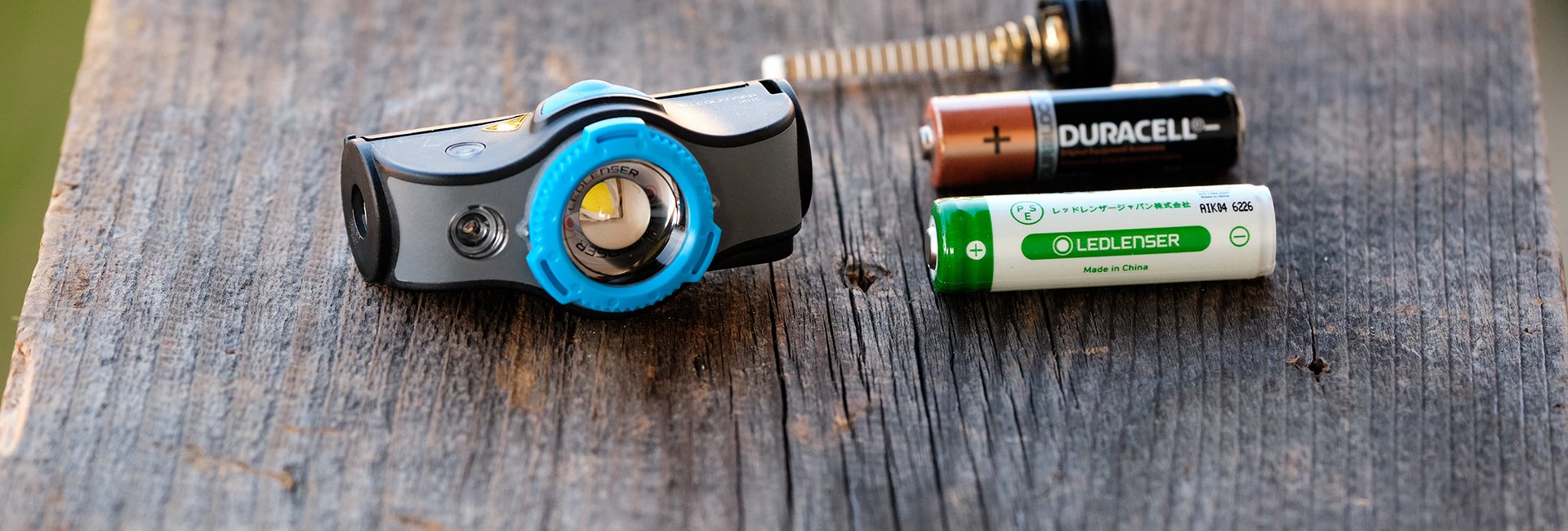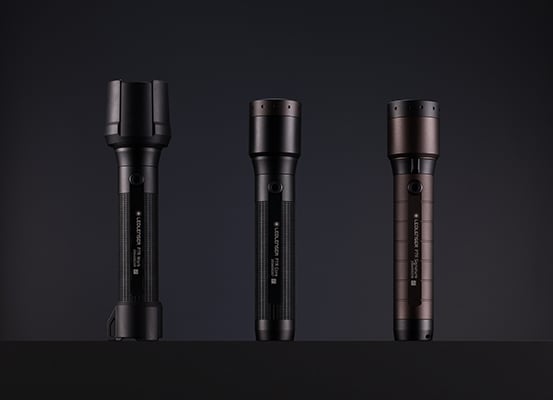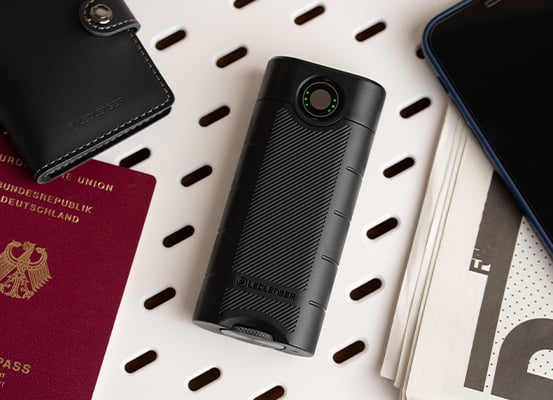
- How can I tell that the battery in my flashlight has leaked?
- How can I remove leaking batteries from my flashlight?
- Can I still use my flashlight if the batteries in it have leaked?
- Why do batteries leak?
- How can I prevent batteries from leaking?
- Are leaking batteries dangerous?
- How do I dispose of leaked batteries?
- The correct way to deal with leaking batteries
The most important facts about leaking batteries in brief
- You can recognize leaking batteries by white or brown crusts, green coating on contacts, stuck cells, or swollen lithium button cells.
- Put on gloves, carefully remove the batteries, dab off any residue, clean the contacts with isopropanol, and let everything dry thoroughly.
- Contact with leaking batteries irritates the skin, eyes, and respiratory tract. Rinse affected areas immediately with plenty of water and seek medical attention in an emergency.
- Batteries can leak even when the device is turned off, especially during long-term storage, deep discharge, heat, humidity, or when different cells are combined.
- Never dispose of batteries in household waste. Take them to a collection point, tape over the poles of lithium cells, and store them in non-conductive packaging until you can dispose of them.
How can I tell that the battery in my flashlight has leaked?
The most common sign that your flashlight's batteries have leaked is the buildup of a white sometimes greenish powder in the battery compartment. Depending on how much battery fluid has leaked, it may also be on the outside of the flashlight.
In most cases, the powders are electrolytes - depending on the battery type, they are acids, alkalis or salts that crystallize in contact with the air. Since they are often corrosive or irritating when they come into contact with the skin or eyes, you should avoid touching them with your bare hands. If you do come into contact with them, wash your hands thoroughly and also clean all clothing, objects and surfaces that have come into contact with them.
Other signs that a battery has leaked include liquid in the battery compartment, an unpleasant odor, or deformation of the battery.

How can I remove leaking batteries from my flashlight?
To safely remove the batteries from your flashlight, simply follow the instructions:
- First of all, make sure that your hands are protected. So it is best to wear gloves.
- Take the batteries out of your flashlight. Avoid any contact with your skin or eyes and make sure that they do not come into contact with other objects or surfaces.
- To keep them safe until disposal, put the leaking batteries into a plastic bag or other safe container.
- Clean your flashlight with a damp paper towel and/or cotton swab. Remove all residue of the coating from the battery compartment and any other affected areas. Wipe all contacts thoroughly, being careful not to spill any liquid into the flashlight.
- Look closely at the battery contacts in the flashlight and check for corrosion and possible damage. If the encrustation is very stubborn and cannot be easily removed, you can also use vinegar cleaner or rubbing alcohol.
- Let the flashlight dry completely.
- Insert new batteries.
- Turn on the flashlight to test if it still works.
Can I still use my flashlight if the batteries in it have leaked?
If you have cleaned your flashlight thoroughly, there is nothing to stop you from using it again. However, it may happen that the leaked liquid has corroded the metal contacts and other components of your flashlight, which may result in loss of function or irreparable damage. In this case, unfortunately, you can no longer use it.
Is a leaking battery dangerous?
Leaking batteries contain chemicals that can irritate the skin, eyes, and respiratory tract. Alkaline batteries release basic substances, while zinc-carbon batteries tend to release acidic substances. Lithium and button cells contain electrolytes that may also be flammable.
Avoid skin and eye contact with leaking batteries
Always wear disposable gloves when removing batteries. Avoid touching your face with your hands while working with leaking batteries.
First aid measures in case of contact with leaking batteries
- Skin contact (touched a leaking battery): Immediately rinse the affected area with plenty of running water. Remove contaminated clothing and wash it separately.
- Eye contact: Rinse the eye under running water. Remove contact lenses, if present, and then seek medical attention.
- Inhalation of dust or vapors: Go into fresh air. If irritation persists, seek medical attention.
Special emergency: A child had a leaking battery in their mouth
If a child has had a battery in their mouth or has swallowed one, call 911 immediately or drive to the nearest emergency room. Do not try to remove the battery yourself and do not give the child anything to eat or drink. Take the packaging or an identical battery with you so that doctors know immediately what it is.
Why do batteries leak?
Batteries can leak for a variety of reasons. In most cases, this happens because they are not used or are used very little. Over time, they lose their performance, the electrolyte inside starts to degrade and attacks the battery's casing. Holes form and the liquid leaks out. This happens mainly with old zinc-carbon batteries. This no longer occurs with alkaline or lithium batteries. Nevertheless, even these models leak from time to time. Possible causes are:
- Damage: If a battery is damaged, for example by a fall or heavy impact, battery fluid may leak.
- Improper storage: Extreme temperatures or moisture can also damage the casing of a battery and cause leakage.
- Use of different types of batteries: Using different types of batteries (e.g., alkaline and rechargeable), batteries from different manufacturers, or batteries with different energy levels in one device can also cause leakage.
- Overcharging: When rechargeable batteries are overcharged, it can cause overheating. The materials inside the battery will expand, which can cause damage to the outer shells.
How can I prevent batteries from leaking?
There are some preventive measures that minimize the risk of your batteries leaking. However, the danger cannot be completely eliminated.
- Use high quality batteries. These are usually better sealed and therefore less likely to leak. Look for reputable brands and check the expiration date to make sure you're getting fresh batteries.
- Before you put the batteries in your flashlight or other device, check them for external damage and deformation. Only use batteries that are in perfect condition.
- If you are not going to use a device for a long time, you should remove the batteries. This will reduce the risk of chemical reactions occurring inside the batteries that could lead to leakage.
- Store your batteries in a cool, dry place away from direct sunlight and avoid extreme temperatures. For example, our battery cases and powerbanks are ideal for storing and transporting batteries.
- Always use the correct battery type for your flashlight.

How do I dispose of leaked batteries?
Proper disposal of leaked batteries is important to prevent environmental damage and protect people's health. In addition, some components of batteries can be recycled. Basically, the same conditions apply to the disposal of leaked batteries as to undamaged batteries: They do not belong in household waste, but should be taken to special collection points.
You can find them here, for example:
- Supermarkets and drugstores: In many stores of daily use there are collection boxes for batteries. They are usually located at the entrance or near the cash registers.
- Electronics stores: You can also return your batteries to electronics stores.
- Public recycling centers and hazardous waste collection centers: Here you also have the possibility to dispose of batteries.
Protect your lamp with high-quality rechargeable batteries and batteries from Ledlenser
High-quality rechargeable batteries and batteries for flashlights, headlamps, work lights, and other lamps ensure that your devices last a long time. We only use high-quality cells that provide your lamp with optimal power and do not leak when used correctly.
- Batteries and rechargeable batteries for your Ledlenser lamps and other devices
- Power banks and battery boxes
- Chargers and cables for your Ledlenser products
The correct way to deal with leaking batteries
Basically, it is not uncommon for batteries to leak if they have not been used for a long time or have been damaged. Although you can take some precautions to prevent leakage, it cannot be completely ruled out. Affected devices can be cleaned relatively easily and in most cases can be used normally afterwards. However, you should be careful when handling the batteries and avoid touching them, as they can cause skin irritation. Dispose of them properly at the designated collection points for batteries.
